Joseph Eid/AFP
By
Cynthia M. Lardner
The Russian Federation is no longer the superpower as that term was defined post-World War II. After the illegal annexation of Crimea and its aggressions in Ukraine, the West suspended Russia’s G8 membership and imposed vast economic sanctions devastating the ruble. By most accounts this left Russia a one and a half commodity nation; one part natural resources and, despite its outdated and declining military, one-half the sale of weapons.
Russia’s natural resources are immense; it has the world’s largest natural gas reserves, it has the eighth largest oil reserves, and has the second largest coal reserves. Russia is the second largest natural gas producer, the world’s leading natural gas exporter and the largest oil producer and exporter. Russia is the main supplier of oil to the EU and beyond.
Russia has a complex and effective war chest incapable of monetary measurement. A significant asset is its veto as one of five permanent members of the United Nations Security Council (UNSC). Russia has mastered weaponising information and cyber intelligence. Russia possesses the technical expertise and manpower to build nuclear power plants and gas pipelines.
Russia also controls the Eurasian Economic Union (EEU). Traditionally the EEU has been perceived as Russia’s way of reuniting many of the former Soviet republics, including Azerbaijan, Armenia, Belarus, Georgia, Kazakhstan, Kyrgyzstan, Moldova, Tajikistan, Turkmenistan, Uzbekistan and Armenia. While its stated purpose is to promote free trade, the reality is that the EEU is an energy superpower. As of 2012, the EEU produced 20.7% of the world’s natural gas, and 14.6% of the world’s oil and gas condensate, 9% of the world’s electrical energy and 5.9% of the world’s coal.
Most importantly, Russia has Vladimir Putin.
Under the guise of economic and trade cooperation, Mr. Putin, along with his fellow oligarchs and Russia’s state-owned corporations, is rapidly creating an even more polarized world to reclaim Russia’s former international influence. By increasing the number of countries obligated or indebted to Russia, Mr. Putin increases Russia’s geopolitical leverage.
It’s no secret that Mr. Putin seeks to destabilize the European Union, wreak havoc on NATO, and drive a wedge between the United States and its traditional allies. Adept at manipulation, Mr. Putin has set his sights on the unstable Middle East North Africa (MENA) region. Mr. Putin’s recent and often under-publicized negotiations have complicated pre-existing relationships within MENA and beyond risking further destabilization, all while lining Russia’s coffers.
Russia is “…eager to become an important player, a big shot in the Middle East. The idea is not to reach any specific results, but it is good for Russia. They don’t need results. They need the process itself, ” said Zvi Magen, a former Israeli ambassador to Russia who is now a senior research fellow at the Institute for National Security Studies in Tel Aviv.
Israel
First, Mr. Putin has diligently worked to build a diplomatic relationship with Israeli Prime Minister Benjamin Netanyahu at a time when U.S.-Israeli relationships are strained.
Russia proffered to help resolve the dispute between Israel and Palestine that dates back to Israel achieving statehood in 1947. Israel has said it is considering engaging in negotiations with the Palestinians. Only one thing matters: whether Israeli Prime Minister Benjamin Netanyahu will agree to some form of two state solution. Time and time again, most recently when the French attempted to intercede, Mr. Netanyahu has said he would never consider any agreement involving two states. No one envisions Russia ever negotiating peace between the two sides. Therefore, what’s in it for Russia and Israel?
First, as for Israel, the conflict with Palestine is currently pending before the International Criminal Court in The Hague. Should Palestine prevail, enforcement only occurs if the countries involved honor the ICC’s decision or if the UNSC opts for discretionary enforcement. With Russia by its side, any draft resolution would be vetoed by Russia.
Second, Israel is right next to Syria. Israel and Russia have agreed to a joint mechanism of “de-confliction” by which Russian planes can traverse Israeli airspace facilitating Syrian airstrikes. To date those airstrikes have not targeted ISIL or Daesh but the moderate forces supporting coalition efforts, most notably around Aleppo and the Turkish border exacerbating the EU refugee crisis. While a ceasefire took effect September 12, 2016, if this holds for seven days, Russia has agreed to coordinate military efforts with coalition forces.
Third, the EEU has already established a free-trade zone with Israel. The United States has been Israel’s primary source of both weapons and military technology. The United States even underwrites some of Israel’s research and development of weapons, and has contributed significant amounts of money to Israeli defense. With the downturn in U.S.-Israeli relations, Israel has provided licenses to Russia for its advanced military technologies, including high tech drones.
What’s ironic is that Palestine obtains its weapons through an indirect supply route that can be traced back to Russia. Russia ships weapons to Syria. From there, they are transported to Iranian or Syrian ports to the Sudan. From there they travel through Egypt’s Sinai Peninsula and finally end up in Gaza.
Fourth, Mr. Putin can protect Israel from Iran.
Islamic Republic of Iran
Iran has been most prominently in the news for the June 2015 nuclear arms deal it signed, over Israel’s opposition, with the five UNSC permanent members – France, United Kingdom, Russia, China, the United States – as well as Germany and the European Union. The deal required Iran to scale back but not to terminate its nuclear weapons program. Under the agreement, Iran is still permitted to engage in limited uranium enrichment.
Mr. Netanyahu blamed the United States for what he defined as “a bad deal” as the concurrent lifting sanctions and release of hundreds of billions of dollars, would allow Iran to purchase weapons. And, that’s exactly what happened.
In recent negotiations with Mr. Putin, Mr. Netanyahu apparently turned a blind eye to the fact the Russia has sold Iran an $800 million S-300 air missile defense system. What is unclear is what version of the S300 was sold to Iran. Of concern is the S-300PS/S-300PM which is the only version thought capable of being fitted with a nuclear warhead.
Although the Kremlin and Iran have characterized it as a defensive weapon, the S-300 is both an offensive and defensive weapon. Defensively, the S-300 can shoot down planes or cruise missiles up to 90 miles away. As such, it can block any foreign power from bombing its nuclear sites.
Offensively, the S-300 threatens the air space of Iran’s neighboring countries. Iran is the world’s leading sponsor of state terrorism. Being highly mobile, the S-300 can also be lent to Iran’s allies. Iran is active with both Hezbollah in Lebanon, and Hamas in Gaza, both of which threaten Israel.
“We have made it very clear to the Russians that we consider this to be a bad move, that we consider it to be destabilizing and not in keeping with what we’ve been trying to accomplish, not only through the JCPOA, but broadly in terms of our engagement with Iran,” stated United States Under Secretary for Political Affairs Thomas Shannon.
More recently, is the presence of Russian strategic bombers and strike fighters on a western Iranian air base strategically positioning Russia in closer proximity to Syrian targets. There is speculation that Russian-Iranian military cooperation runs deeper but, to date, neither government is talking.
With sanctions lifted, Iran has resumed producing oil at full capacity creating tension between Iran and Saudi Arabia. Mr. Putin having supported Iran’s increased oil production, appears to have eased the existing tensions between the two countries.
The Kingdom of Saudi Arabia
Photo Credit: Kremlin Press Service
At the September 2016 G20 summit, Saudi Arabia and Russia agreed to set-up a task force to review oil market fundamentals and to recommend measures and actions. The move stabilized the market for oil and limited output.
Russian Energy Minister Alexander Novak confirmed that the two countries were moving to a strategic energy partnership and the high level of trust would allow them to jointly address global challenges.
Saudi energy minister Khalid al-Falih expressed optimism about cooperation with other producers, adding freezing production is not the only solution.
The growing relationship between Saudi Arabia and Russia complicates its already troubled relationship between the United States. However long the 70 year American-Saudi relationship, the reality is that based on fundamental differences, the two countries have kept one another at arms-length. A major schism occurred in 2015 when Saudi entered the Yemen War undermining the U.S., U.S. monetary funding and military cooperation ceasing. Since then, the relationship has subsisted on the sharing of intelligence.
According to the Council on Foreign Relations, “Prince Turki al-Faisal—the most outspoken senior member of the ruling family and a former head of Saudi foreign intelligence and former ambassador to the United States—has accused Obama of “throw[ing Saudi Arabia] a curve ball” because he has “pivoted to Iran.” The Prince went on to say that the Saudis would “continue to hold the American people as [an] ally”—but implied that they no longer view the American president as one.”
Saudi Arabia is in an awkward situation as it has been part of the American led coalition forces since September 22, 2015, the day of the very first Syrian airstrike. Like American led coalition forces, the Saudis have backed moderated rebel groups and want Syrian President Bashar al-Assad removed from power.
In July, Saudi Arabia pushed Russia for an agreement regarding the removal of Mr. al-Assad. Saudi Arabia’s Foreign Minister Adel Al-Jubeir stated that if a compromise can be found on the Syria conflict, “We are ready to give Russia a stake in the Middle East that will make Russia a force stronger than the Soviet Union” with access to a pool of investment “greater than China’s.”
After months of failed Syrian peace talks, on September 9th Russian Minister of Foreign Affairs Sergey Lavrov and United States Secretary of State John Kerry negotiated a Syrian cease-fire which took effect on September 12th. The cease-fire included no agreement as to the fate of President al-Assad.
The situation as it now exists is that Saudi Arabia now see a retreating U.S., a resurgent Iran, and an emerging Russia; a Russia with strong Iranian ties.
Egypt
The United States and Egypt have had a good relationship. As economic and security partners, the United States and Egypt have worked to further develop the region and to defeat the shared threat posed by global terrorist networks. To that end, the U.S. pays for many of Egypt’s military weapons. Since 1979 Egypt and the United States have had a trade agreement.
“Because of its regional influence and geographic location, Egypt is America’s key partner on shared goals of peace and stability throughout the Middle East, North Africa and beyond. The two countries maintain close military-to-military relations, predicated on the shared view that a strong and modern Egyptian military contributes to regional stability. The U.S.-Egypt relationship has also grown to include cooperation on counter-terrorism, the Israeli-Palestinian peace process, peacekeeping operations in Africa, deepening regional economic integration and other shared endeavors,” explains the Washington D.C. Egyptian Embassy’s website.
Directly Egyptian President Abdel Fattah El Sisi’s accession to power, first in a July 2013 military coup and then in a highly constrained 2014 election, diplomacy continued for a short period of time, with Mr. El Sisi calling the strategic partnership “a stable and strategic one” while President Barack Obama said “the U.S.-Egyptian relationship has been an important cornerstone of our security policy and our policy in the Middle East for a very long time.”
Then, in contravention of Rule of Law and the Responsibility to Protect, Mr. El Sisi callously authorized Egyptian security forces to engage in unprecedented abuses, including extrajudicial killings, the detention of tens of thousands of political prisoners, the widespread use of torture, and the forced disappearances of hundreds of Egyptians, giving rise to rampant human rights violations. Egypt is now a polarized and highly volatile society.
The Egyptian government promulgated conspiracy theories about the United States to its governmental officials and the public.
In addition, Mr. El Sisi is one of the few supporters of Mr. al-Assad, contrary not only to U.S. foreign policy but that of other MENA countries, save Iran.
On January 5, 2016 formal diplomatic ties between Egypt with Iran were terminated by Egypt although informal talks have continued.
“When it comes to Iran, Egypt is careful about its own relations with the Arab states of the Persian Gulf. Egypt needs the financial help that it gets from those Arab states, and it does not want to risk offending Saudi Arabia either. In addition, it will receive no major political or economic benefits from improving its relations with Tehran,” stated Ghasem Mohebali, the Iranian Foreign Ministry’s former Middle East director general.
Like a scorned lover, Egypt has turned to Russia. While not directly confirmed, the Kremlin has alluded that it has entered into a contract with Egypt to deliver 46 brand-new MiG-29M fighter jets in a contract valued at $2 billion.
Mr. El Sisi is also negotiating a free-trade agreement between Egypt and the EEU. It is uncertain whether this move is related to energy-poor Egypt’s recent discovery of a large offshore natural gas reserve, or to the November 2015 announcement that Russia is loaning Egypt $25 billion over a 36 year period to finance the construction of Egypt’s first nuclear power plant.
As for Egypt and Saudi Arabia, in April 2016, the two countries signed economic agreements worth approximately $25 billion.
As Tamara Cofman Wittes, a Brookings Senior Fellow and Director of the Center for Middle East Policy, stated, “Egypt’s looming instability demands that the United States take steps now to safeguard itself from reliance on a country we cannot rescue, not least from its own leaders’ worst impulses.”
Turkey
The most notable event in Turkey-Russo relations occurred in November 2015 when Turkey improperly and in violation of international law shot down a Russian fighter plane that had passed through its airspace in what had to have been only a matter of seconds without any signs of provocation. The relationship between Turkey and Russia became hostile on every imaginable level. In June 2016 Turkey apologized to the Kremlin for the downing of the fighter jet. There was a quick return to warm Russian-Turkey diplomatic relations.
Meanwhile Turkey negotiated an agreement with the European Union halting the free flow of refugees from Syria and other countries in exchange for payment to help defray the costs it was incurring as a result of the refugee crisis, certain EU privileges for its citizens, and for a fresh look at its recurring request to accede to the EU. The EU failed to deliver on its promises.
The matter escalated following a July 15th attempted coup, which Russian intelligence allegedly gave President Recep Tayyip Erdogan advanced warning. While the attempted coup was underway, the Kremlin issued a statement supporting Mr. Erdogan. Turkey’s Foreign Minister Mevlut Cavusoglu, responded by stating that, “We thank the Russian authorities, particularly President Putin. We have received unconditional support from Russia, unlike other countries.”
Mr. Erdogan responded with widespread and ongoing violent crackdowns on over 10,000 individuals in virtually every Turkish institution – from his personal security forces to the military and to education – and suppressed the media – all in violation of Turkey’s democratic Constitution and international human rights law. Along with sparking outcry from governments around the world, the EU stated that it would not honor its agreement as Turkey had grossly violated Rule of Law.
Mr. Erdogan blamed the failed coup on Fethullah Gulen, an Islamic cleric and U.S. resident. Mr. Erdogan’s unmet demands that the U.S. extradite Mr. Gulen to Turkey has precipitated chill in U.S.-Turkish relations. Nonetheless, Turkey has continued granting access to the United States and NATO to use Incirlik Air base.
US Air Force F-16 Fighting Falcons at Incirlik air base, in Turkey. Credit: Thomson Reuters
While it is questionable whether Russia requested access to Incirlik, Turkey’s Prime Minister Binali Yildirim has indicated that Turkey would consider allowing the Russian air force to operate from Turkey’s Incirlik base “if necessary.” This may or may not be based on Russia’s agreement in conjunction with the ceasefire to coordinate efforts with U.S. led coalition forces.
As for the Syrian War, Mr. Erdogan’s primary objective has been insuring that the YPG, the Syrian Kurds, remain unable to establish a separate Kurdish state. The Kurds, a Turkish military target, have been the only ground forces supporting the coalition creating a conflict between Turkey, the U.S. and NATO.
Mr. Erdogan has also been unwavering in his opinion that Mr. al-Assad be removed from power.
Russian Foreign Minister Sergey Lavrov openly declared that the future of Turkish-Russian ties depends on Turkey’s position on Syria.
Mr. Yildirim has now stated that Turkey will not object to Mr. al Assad temporarily remaining in place during a transition period as “he is one of the actors today no matter whether we like it or not,” but he stressed Mr. al-Assad has no role to play in Syria’s future. Should this not occur it will leave a fundamental rift between Turkey and Russia.
Mr. Erdogan, left, met with Mr. Putin at the September G20 Summit (AFP/file photo)
Not surprising, Russia has invited Turkey to join the EEU. Given its clear rejection by the EU, Turkey has no reason to decline the Kremlin. Russia has also approached India, Tunisia, New Zealand, and Vietnam.
Conclusion
Mr. Putin is now well-positioned in the MENA region to manipulate governments into concurring with Russian foreign policy. Mr. Putin has engaged in numerous transactions guaranteed to improve Russia’s financial situation, he has positioned Russia to further control the productions and the price of oil.
Contingent upon Mr. Erdogan, Mr. Putin may hold the key to a final resolution of the Syrian War, a resolution which would keep Mr. al-Assad in power; a man who has gone well beyond indifference to the needs of the Syrian people, including denial of access to humanitarian relief and to using chemical weapons on civilians. While the correct outcome would be imprisonment for the commission of war crimes and crimes and against humanity the reality is that this will probably never happen unless there is a new Syrian government supportive of a finding of guilt by the International Criminal Court as discretionary enforcement by the UNSC would be vetoed by Russia.
The ramifications extend even further. Should Russia continue to aggressively pursue expansion beyond the borders, including in the Balkans, the Baltic Region, Eastern Europe and Ukraine, or if Russia provides military assistance to China in the South China Sea dispute, the international accord that has existed may well be diluted.
The United States, the European Union and the MENA region have to reexamine their foreign policies and to build or, in many cases, rebuild, a unified vision for regional peace. The truth is that there will only be a secure world order if there is adherence to justice and Rule of Law. It is from this premise that all decisions ought to be made. The world desperately needs more peace and less conflict.
The author with United Nation Secretary-General Ban Ki-moon at the inauguration of the new ICC complex on April 19, 2016
Cynthia M. Lardner
Cynthia M. Lardner is an American journalist living in The Hague writing about geopolitics for Tuck Magazine and E – The Magazine for Today’s Executive Female Executive. Her blogs are read in over 37 countries. A thought leader in the area of foreign policy, her philosophy is to collectively influence conscious global thinking. Ms. Lardner holds degrees in journalism, law, and counseling psychology.
Sources

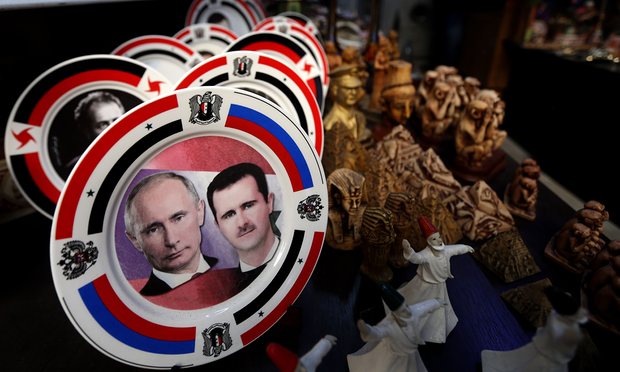
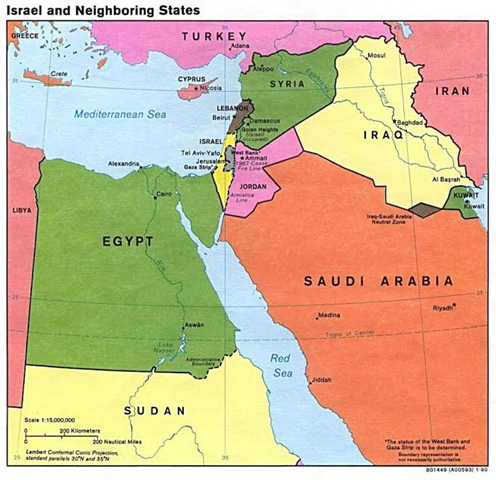
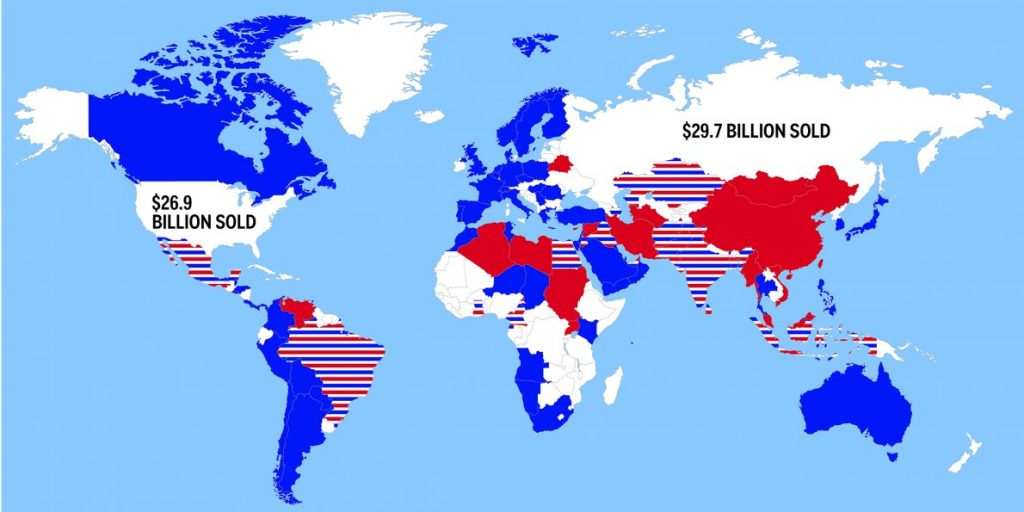
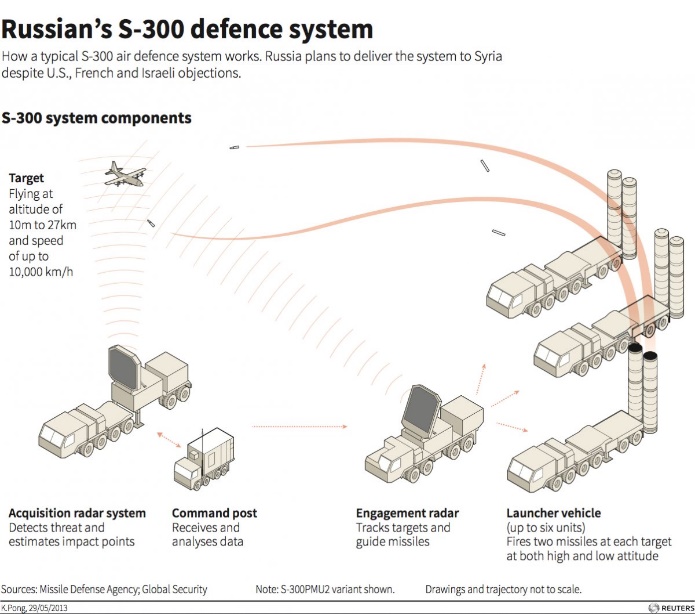
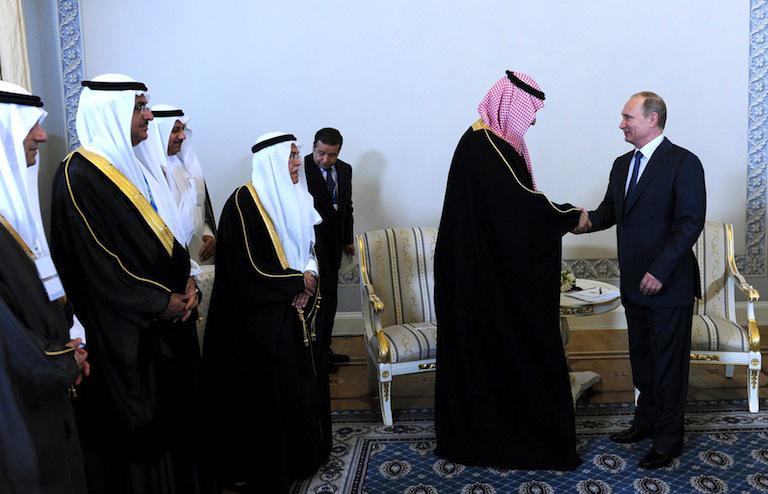
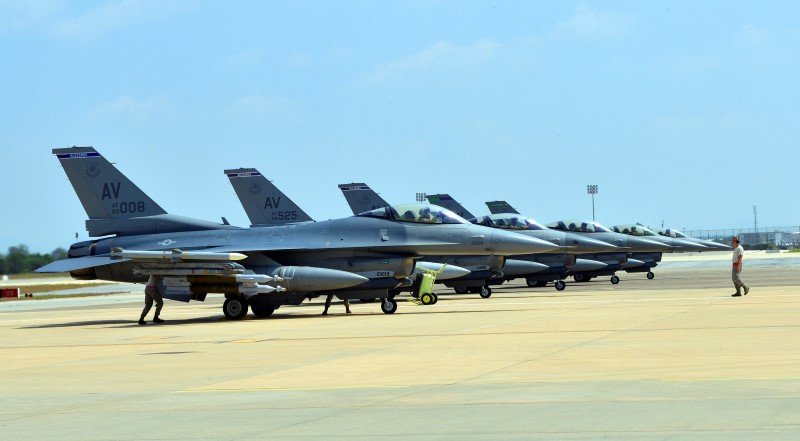
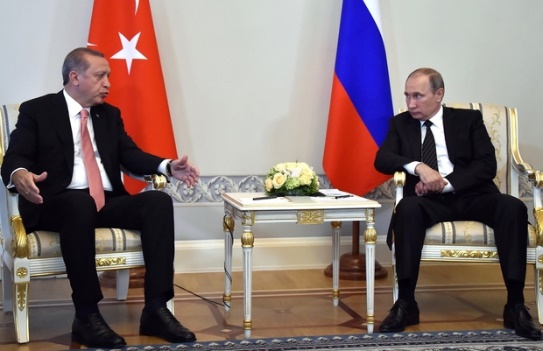
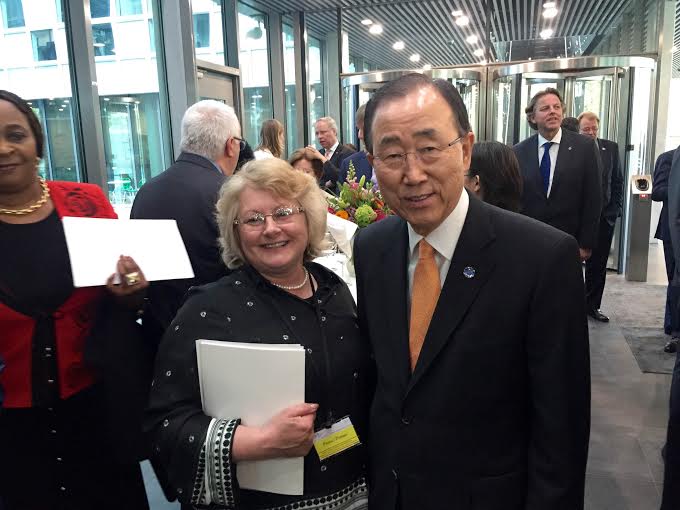
No Comments Yet!
You can be first to comment this post!